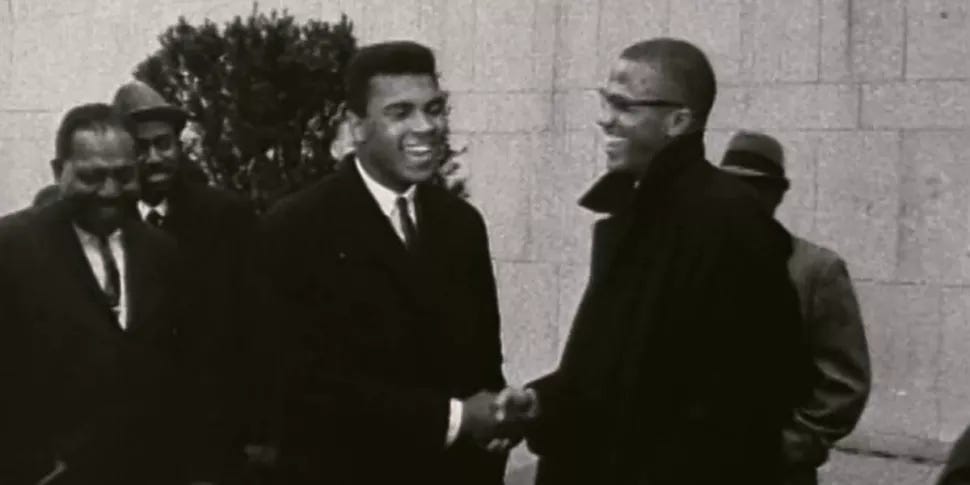Malcolm X and Muhammad Ali
Reflections on race in America
The Netflix 2021 documentary, “Blood Brothers: Malcolm X and Muhammad Ali,” directed by Marcus A. Clarke, recently aired on Cuban television. The documentary is based on the 2016 book Blood Brothers: The Fatal Friendship Between Muhammad Ali and Malcolm X, authored by Randy Roberts of Purdue University and Johnny Smith, a sports history professor at Georgia Tech. My commentary today reviews the documentary and the book.
The Nation of Islam
The doctrines of Elijah Muhammad and the Nation of Islam on racial separation and the evil of the white man were fundamentally inconsistent with the revelations of the Prophet Muhammad, which constitute the sacred textual foundation for orthodox Islam. According to the Koranic revelation, there is no natural division among human beings on the basis of skin color or ethnicity, and there is no theological, philosophical, nor moral distinction between the so-called white man and so-called black man. Moreover, all human beings are by nature m…


